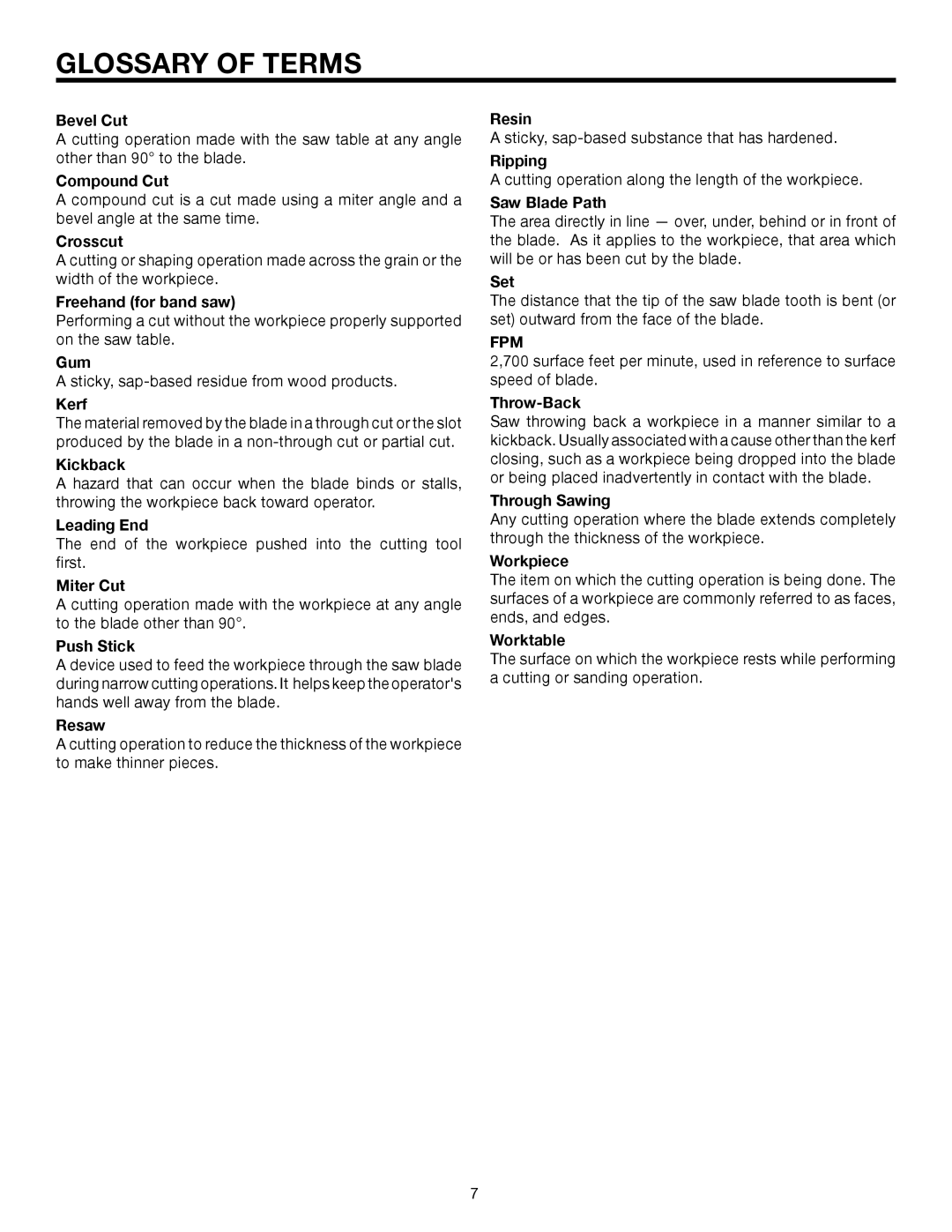GLOSSARY OF TERMS
Bevel Cut
A cutting operation made with the saw table at any angle other than 90° to the blade.
Compound Cut
A compound cut is a cut made using a miter angle and a bevel angle at the same time.
Crosscut
A cutting or shaping operation made across the grain or the width of the workpiece.
Freehand (for band saw)
Performing a cut without the workpiece properly supported on the saw table.
Gum
A sticky,
Kerf
The material removed by the blade in a through cut or the slot produced by the blade in a
Kickback
A hazard that can occur when the blade binds or stalls, throwing the workpiece back toward operator.
Leading End
The end of the workpiece pushed into the cutting tool first.
Miter Cut
A cutting operation made with the workpiece at any angle to the blade other than 90°.
Push Stick
A device used to feed the workpiece through the saw blade during narrow cutting operations. It helps keep the operator's hands well away from the blade.
Resaw
A cutting operation to reduce the thickness of the workpiece to make thinner pieces.
Resin
A sticky,
Ripping
A cutting operation along the length of the workpiece.
Saw Blade Path
The area directly in line — over, under, behind or in front of the blade. As it applies to the workpiece, that area which will be or has been cut by the blade.
Set
The distance that the tip of the saw blade tooth is bent (or set) outward from the face of the blade.
FPM
2,700 surface feet per minute, used in reference to surface speed of blade.
Throw-Back
Saw throwing back a workpiece in a manner similar to a kickback. Usually associated with a cause other than the kerf closing, such as a workpiece being dropped into the blade or being placed inadvertently in contact with the blade.
Through Sawing
Any cutting operation where the blade extends completely through the thickness of the workpiece.
Workpiece
The item on which the cutting operation is being done. The surfaces of a workpiece are commonly referred to as faces, ends, and edges.
Worktable
The surface on which the workpiece rests while performing a cutting or sanding operation.
7
